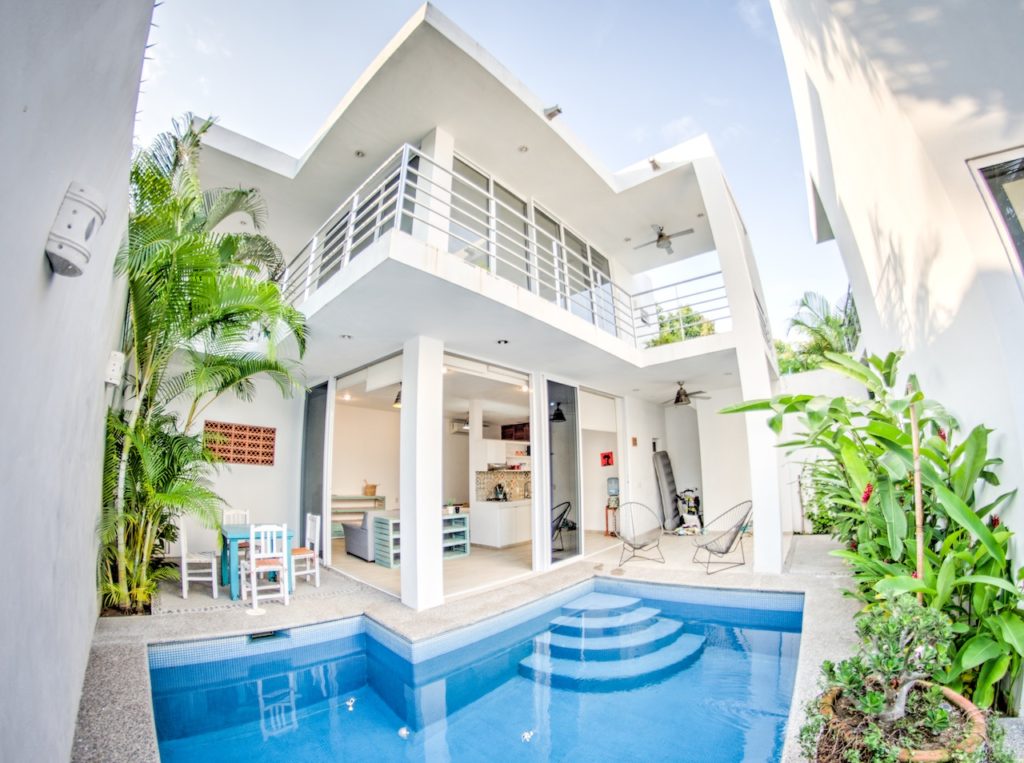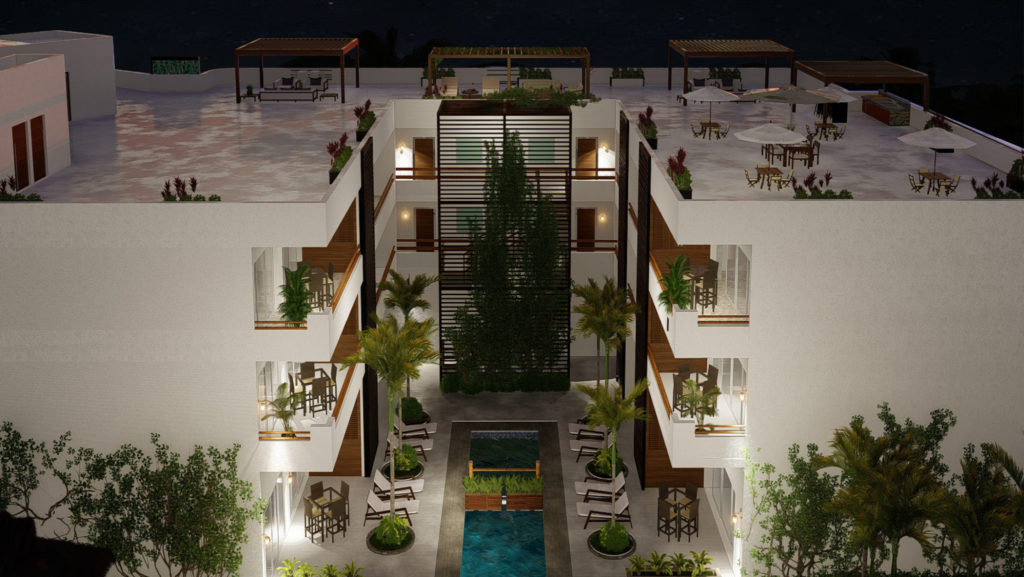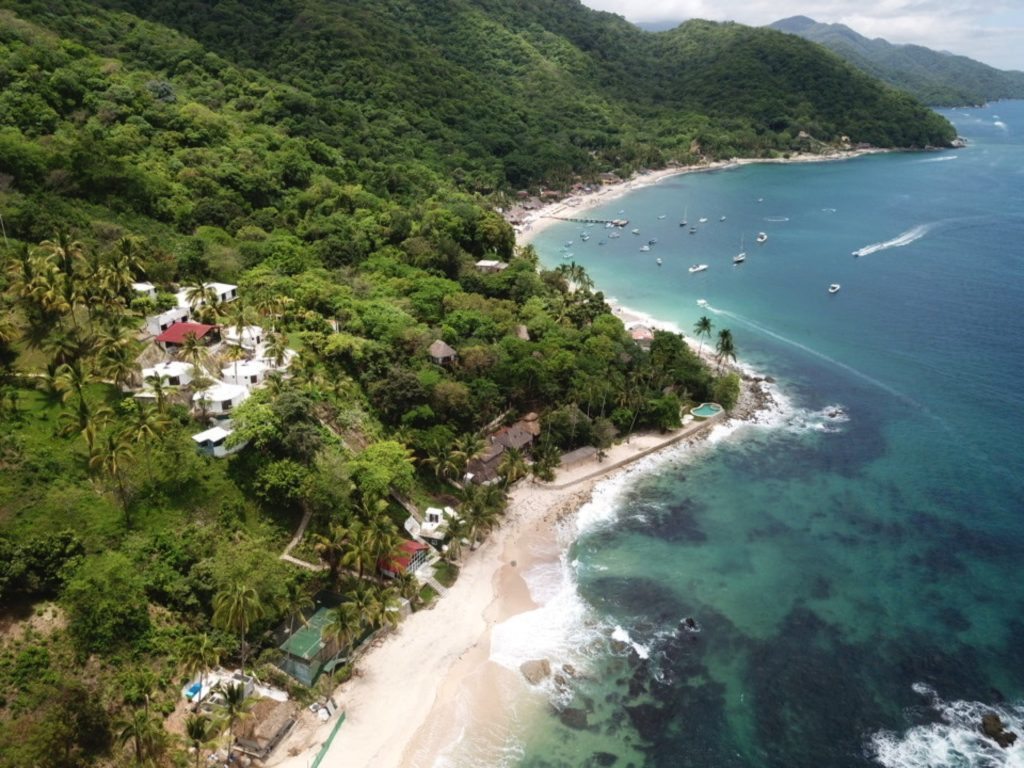Fractional ownership is a rediscovered form of real-estate sharing that has been recently gaining traction. It may be due to the growing popularity of the sharing economy. Ridesharing, apartment/home lending, peer-to-peer lending, reselling, coworking, talent-sharing… the list goes on.
When you heard the word “timeshare” does it send shivers up and down your spine? Almost everyone is familiar with the term, but perhaps less familiar with how fractional ownership works. Both are shared ownership concepts that help reduce your upfront costs by sharing the expenses between multiple owners, but there are some serious differences between the two.
In order to decide which is best, the buyer must decide which type is best based on their main objective for the property.
Below we will cover the differences between timeshares and fractional ownership In Mexico, the pros and cons, and where you can find fractional opportunities starting around $20,000 USD!
Timeshares vs Fractional Ownership: Pros & Cons
Buying equity vs time.
Fractional ownership of vacation homes is often mistaken with timeshares, but there are some big differences. Below we’ll go over the pros & cons of timeshares vs fractional ownership in Mexico.
General
Something always feels a bit off when a team of salesmen is trying to pitch you a timeshare, I don’t know why. Despite this, a survey conducted by the American Resort Development Association (ARDA) showed that 85% rated their overall timeshare ownership experience as excellent or very good. They are happy with the purchase that grants them better yearly vacations.
Fractional ownership in Mexico is a financial investment that allows you to build equity since you are an actual owner. Owners get to enjoy the financial benefit of the appreciation of real estate without all the commitment! They also have a choice between personal use or rental income.
Both fractional ownership and timeshares help reduce your upfront costs by sharing the expenses between multiple owners. Timeshares, however, are viewed by many as a vacation expense or a lifestyle enhancement, and not a financial investment. A timeshare purchase gives the buyer the right to use the property for a designated length of time on the same week or two every year without being required to make reservations. The buyer, however, is not technically an owner of the property. It is an illiquid asset that can actually LOSE VALUE over time.
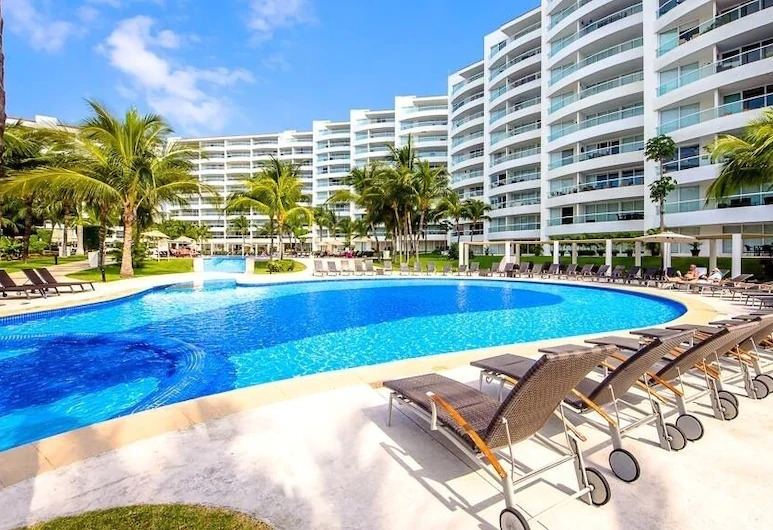
Equity
Own for Less
Fractional ownership investors receive partial equity in a property and become co-owners of a valuable asset. It is owned, so the possession of the property never expires. The property value also tends to appreciate, which means owners can actually sell their shares at a profit years later!
Timeshares do not provide the opportunity for appreciation of the membership. Therefore, through fractional ownership of vacation homes, the owner is actually investing in real property, instead of simply renting out the same week or two every year from the actual owner.
Ultimately, timeshares are like swimming pools: if you buy one, do so because you love the idea of owning it, not because you expect to make a profit.
With a timeshare you must ask yourself: Are you ok with your allocated usage of the property? You will need to decide if the amount of time you are entitled to will match your needs.
- Fractional Ownership: It is an investment where owners have a share of the title, based on the number of owners, and it has appreciation potential.
- Timeshares: You pay for the right to use a property for a certain amount of time per year. There is no property equity. A timeshare is usually a purchase that is intended to eliminate hotel expenses.
Ownership
People often mix up fractional ownership with timeshares where consumers buy a certain amount of time in a vacation home but don’t actually own the property. With fractional ownership, you own real estate that can be sold, placed in a trust, gifted, or inherited.
There are serious barriers to investments in real estate in Mexico, especially for foreign investors. Foreigners have to go through rigorous paperwork and must go through agencies to help them purchase a property. Mortgage rates are also very expensive here. This is where fractional ownership of vacation homes simplifies the whole process, as investors can simply buy shares in a Mexican corporation that owns the property or a collection of properties.
Fractional ownership doesn’t expire. You own it. It’s basically like owning a share in a company. Fractional ownership of vacation properties, sometimes known as Private Residence Clubs (PRCs), allow you to purchase partial equity.
On the other hand, right-to-use timeshares often expire after a certain number of years (20 – 99 years). After this time period, your right to use the timeshare ends.
Usage
The most popular model for fractional ownership usage is the “Usage Assignment”. The usage period granted to each owner can be fixed (such as “the month of February” or “the first two weeks of July”), flexible (meaning dates are adjustable), or a combination of fixed & flexible.
In multi-unit fractional properties, the usage rights can be to a particular unit or to a group of units. Usage rights can be restricted to owners only, or extended to family, friends, rental tenants, exchanges, or any combination of these.
Usage fees, along with any rental income generated if the property is rented to non-owners, are used to pay the expenses of ownership. If the sum of usage fees and rental income exceeds the total expenses, a yearly surplus is divided among the owners. If there is a shortfall, each owner must contribute. It is possible to employ the Usage Assignment Approach, but still allocate a certain number of weeks each year as Pay-To-Use weeks, meaning that during those times the home will be rented out to owners or to non-owners and the resulting income split among the owners in proportion to ownership.

Management
There is also a big difference in the amount of control a fractional owner has. While the fractional management company is responsible for day-to-day operations, owners retain some authority as their portion of ownership is counted as votes in yearly meetings and property decisions.
There are no management or maintenance responsibilities, as the property manager handles and markets the asset. Owners can rest easy knowing that property maintenance, common area upkeep, and repairs are all taken care of by the property manager.
- Fractional Ownership: Owners have some say in the management of the property.
- Timeshares: Developer or hotel operator maintains management control.
Resale Value
If you have found a vacation destination that you absolutely love and want to return to every year and have decided that a timeshare is the way to achieve your goal, go for it! But make sure you buy it used. Current owners that may have grown tired of maintenance fees, lost interest in the destination, or have become frustrated from trying to trade their time slots may be willing to sell their timeshare at a fraction of the original cost. To find these used timeshares, search for “timeshare resale” on Google and you’ll probably find multiple timeshare options in your area.
Fractional ownership offers the financial benefit of the appreciation of real estate… but how hard will it be to resell the property? Since the market for fractional ownership of vacation homes in Mexico tends to be niche, selling your shares can be more difficult than selling a traditional property. A net capital gain is realized should the buyer sell his/her share or the group of owners decides to sell the entire property.
- Fractional Ownership: Resale value tends to appreciate
- Timeshares: Resale is difficult even at reduced prices
Costs & Risks
According to ARDA‘s 2018 report, the average sales price per interval for a timeshare was $22,180 USD. The average annual maintenance fee was $1,000 USD and it increases around 4% per year. These fees cover property management, maintenance and repairs, taxes, insurance, and housekeeping services.
With fractional ownership, the risk is also shared.
Before making a decision, always do as much research as possible. For example, here is a Timeshare Scam Database that you can use to cross-reference companies:
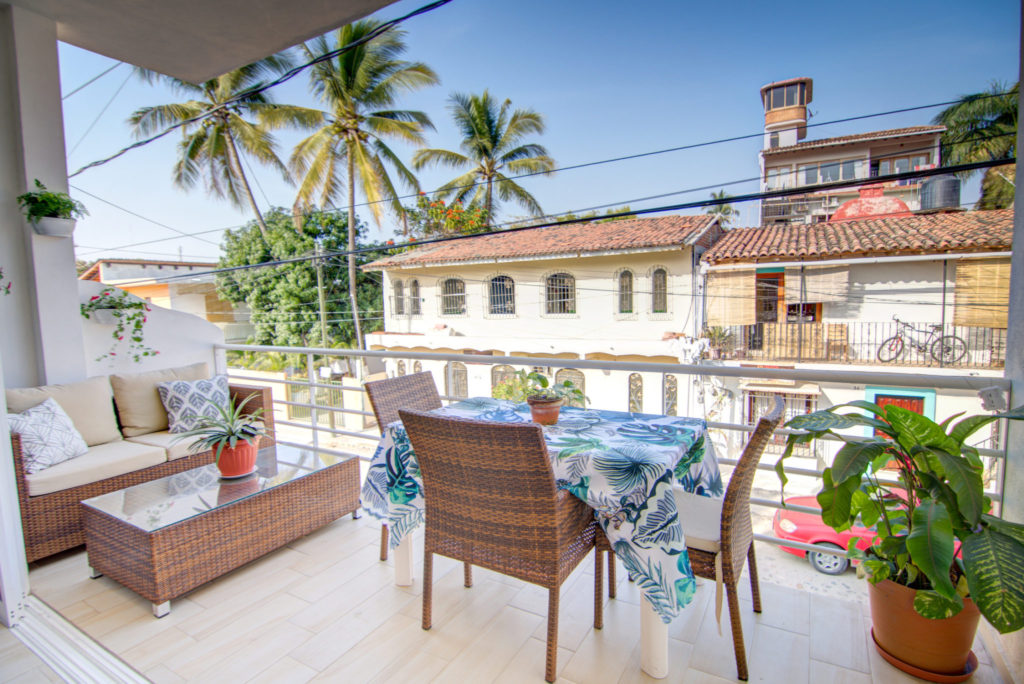
Considerations for Fractional Ownership in Mexico
The idea that properties can be bought in fractions without having to purchase the whole is one that will boost growth and revenue in the whole market. Real estate ownership can be redefined.
As the property is shared among co-owners, the specific terms and conditions of the trust agreement on which the fractional ownership model is based must be well established. Administrative, maintenance, and homeowner’s fees must also be considered when organizing a fractional ownership model in Mexico.
Here are big considerations and questions to ask about a fractional ownership arrangement in Mexico:
- Is there an owners association? How are decisions made regarding the property and common spaces?
- Will the co-owners have any control over how costs (particularly management fees and dues) increase over time and how the property is managed and maintained?
- How much will each co-owner be able to control and predict the unit they will stay in? Is the usage system fair?
- What is the per-night cost when one adds up all of the annual costs (including management fees and dues)? Divide them by the number of days of use each year.
- Can a fractional owner vacation somewhere else, and how easy is it to get the desired location and dates?
- What restrictions apply to re-sale?
Management & Administration
Fractional ownership is usually managed by the staff and the tasks can be divided into 3 categories:
- Property administration
- Rental management & owner usage allocation
- Accounting
The property administrator is responsible for day-to-day operations. Owners can rest easy knowing that cleaning services, inventory, maintenance, common area upkeep, and repairs are all taken care of by the property administrator.
The rental management company is in charge of the rentals and owner usage allocation. They are usually in charge of setting nightly rates depending on seasonality, as well as all guest communication, concierge-level services, and providing a comprehensive local guidebook for all visitors.
The accountant will take care of collecting payments from co-owners, paying bills, and keeping records. Occupancy rates, total revenue, & taxes reports should also be issued to all owners.
Meeting the Other Owners
We highly suggest meeting up with all the other co-owners and discussing the following:
- Determine monthly or yearly costs and the responsibilities of all the owners. Some may want different amounts of usage, which would require them to own more shares or to purchase additional timeshare rentals credits in Puerto Vallarta (see below).
- Determine who will be the property administrator, property manager, and rental agent.
- Find out if a contribution is being made to a maintenance fund.
- Determine an exit strategy for all owners. A very typical exit strategy is to hold the property for 7 to 10 years and then sell the home as whole ownership. This way all fractional owners of vacation homes would benefit from the property’s appreciation.
Paperwork & Legalities
Every fractional ownership group needs a document or group of documents detailing their rights (covering usage allocations, rentals, & resales) and obligations (covering cost allocation, dues structure, rules, repairs, & maintenance). Common names for these documents are User Agreement, Bylaws, Shared Ownership Agreement, Co-Ownership Agreement, Management Agreement, or Usage Rules.
Did you know a non-Mexican may buy a property, and they don’t even need temporary residency? Mexico had previously banned foreigners from owning property within “restricted zones” which is any property within 50 km from the coast and 100 km from the border. The only way for a foreigner to own a property within these zones is by forming a trust (fideicomiso) or Mexican corporation.
Having the property held in a trust allows the bank to be the administrator it and is another layer of creditor protection. Even some local Mexicans use this LLC structure as it is a very safe way to protect your purchase. It is also a way for the banks to make some extra money as they charge a yearly fee (~$500 USD).
Fortunately, you will not have to go through the whole process of forming a fideicomiso, since fractional ownership of beach homes in Mexico avoids this inconvenient paperwork. There are a few fractional ownership pros and cons to keep in mind before making a decision.
FAQ
The Future: Blockchain for Real Estate Investing & Ownership Records
Cryptocurrencies are becoming more and more popular, with some of them seeing explosive growth. In order to hedge against volatility, many people are cashing out some of their gains to invest in real estate in Mexico. Some are even in search of “passive” income investment opportunities such as beach vacation rentals.
Blockchain technology could also be used to facilitate real estate investing in Mexico, especially since notaries and the entire bureaucratic process in Mexico are so costly and time-consuming. We believe blockchain has the potential to eliminate the need for storing physical copies in a safe at home, scanning documents, and tracking down physical files at the local recording office.
With the new developments blockchain technology brings to the market, smaller-scale investors will have unrestricted access to real estate investments in Mexico, especially by simplifying fractional ownership of properties.
Below we’ll cover how cryptocurrencies and blockchain can have a huge future in this country with real estate investing in Mexico.

Blockchain Ownership Verification
Mexico’s public administration can be described as a collusion between politics and bureaucracy. If you have ever spent time at the Notary’s office in Mexico, you will know that the process of recording property rights is both burdensome and inefficient. The Notary must verify everyone’s identity, take signatures, and then go to the local recording office, where it is manually entered into the county’s central database and public index. In the case of a property dispute, claims to the property must be reconciled with the public index.
In the future, property deeds and fractional ownership will probably be stored and verified on the blockchain. With this system in place, owners could trust that their deed is accurate and permanently recorded.

Simplified Real Estate Transactions
With cryptocurrencies and blockchain, you can expect swift and relatively inexpensive transactions. Skip the bureaucratic nonsense of international banking transfers. Buyers and sellers can use digital currency exchanges such as Bitmex, Coinbase, & Bitpay.
Decentralized Public Ledger
Our long-term objective is to take advantage of blockchain technology for fractional ownership in Mexico. All investor credits would be digitized into the public ledger so that all transactions are permanently recorded and viewable to all owners. This financial transparency is key! This system could automatically allocate usage of any of the properties or a revenue portion of the overall timeshare rentals in Puerto Vallarta, Mexico.
For example, fractional owner Jane owns 10 digital tokens and she wishes to add 5 more to her portfolio. She puts a bid on the system offering to purchase 5 tokens at $2200 per token. Meanwhile, fractional owner Joe owns 20 ownership tokens and is interested in selling 5. He then puts in a sell offer for $2300 per token. Jane could then see the offer and up her bid to $2250. Joe would then see Jane’s new bid and could change his sell order to $2250 which would immediately trigger the purchase. All rights to the token are now transferred from Joe to Jane and confirmed and made permanent as a digital record in the blockchain for real estate investing in Mexico.

Smart Rental Contracts
There is also a huge opportunity in the area of Smart Contracts with blockchain for fractional ownership or vacation rentals. Say, for example, a potential renter would like to lease your vacation property. The property manager could agree to give the door code as soon as the security deposit is made by the renter. The smart contract could then automatically send the renter all their check-in information as soon as their payment is made. This would eliminate 3rd party booking platform fees (e.g. Airbnb or Booking.com), additional payment processing fees, and maybe even notaries!
In addition to creating liquidy, income distribution will become much more simplified and regular with automated deposits in the blockchain. Since each transaction (income and expenses) will also be recorded on the blockchain for real estate investing in Mexico, it will form a permanent and secure record.
Fractional Ownership Opportunities in Puerto Vallarta
If you would like to purchase a vacation home in Puerto Vallarta but can’t justify the high cost for occasional visits, fractional ownership of beach properties in Mexico may be the solution. It has become a popular investment strategy in the vacation rental market.
Learn more about the benefits of investing in the Puerto Vallarta area, as well as some great fractional owner options starting at $20,000 USD.


